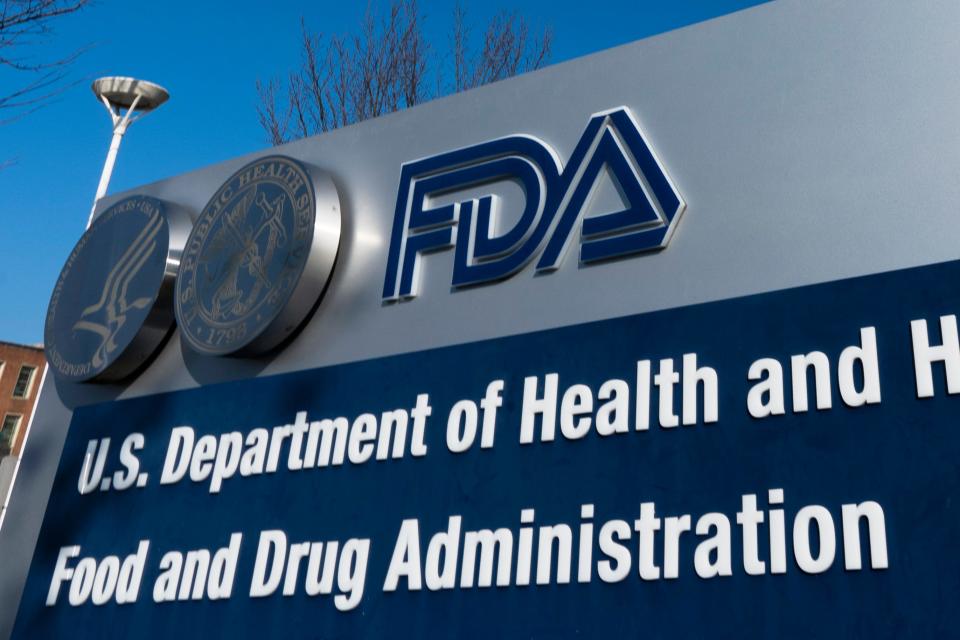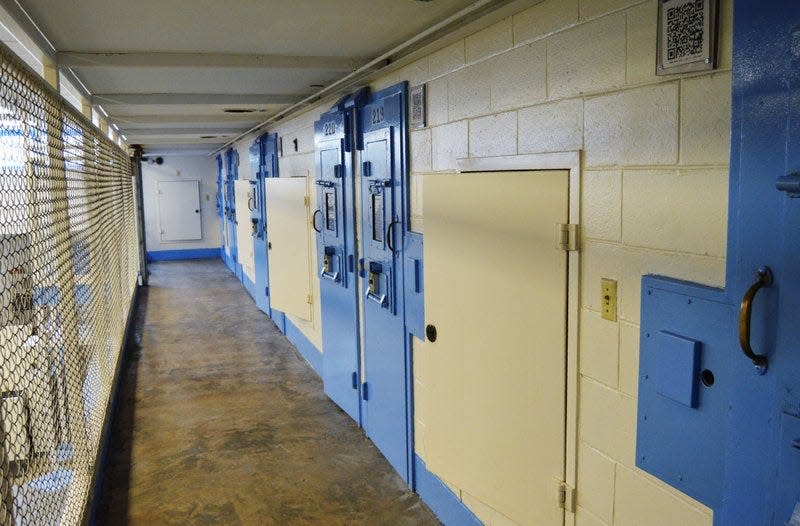SC once obtained execution drugs overseas. How would shield law impact accountability?
Supporters of South Carolina’s effort to pass a law to hide the identities of companies or pharmacies willing to sell drugs for lethal injection executions are adamant complete secrecy is the only option.
The current shield law legislation making its way through the Statehouse gives no opportunity to disclose any information about manufacturers, pharmacists or compounding pharmacies that may provide lethal injection drugs to the state, even through legal discovery or under seal in litigation.
However, the department obtained drugs for lethal injection in illegitimate ways in the past.
Over a decade ago, when domestic supply of a sedative used in U.S. executions was dwindling, the state was one of several that obtained drugs from an unregulated overseas pharmacy operating out of a driving school in London against federal regulation.
Still, state Sen. Greg Hembree (R-Horry), a sponsor for the bill, has told legislators that the South Carolina Department of Corrections will have “ultimate responsibility” for accountability in the event of a botched execution.
Dig deeper: Shield laws haven’t stopped problems with executions, but they have kept them hidden
“Bryan Stirling still has to follow federal law, there’s nothing in the law that says that he’s exempt from federal law,” Hembree said at a Senate committee meeting on Feb. 2 about SCDC’s director. “He put some pretty clear testimony on the record that they were not going to violate federal law.”
"Director Stirling has testified that the department will comply with federal law as to obtaining any drugs for execution and would not obtain drugs from the so-called gray or black market," SCDC spokesperson, Chrysti Shain, said in an email to The Greenville News. "The department will comply with federal and state law when it comes to obtaining any drugs for execution."
But although the amended bill states that no drug shall be used in an execution unless approved by the Food and Drug Administration, in 2019 the U.S. Department of Justice determined the FDA does not have any obligation to regulate drugs for the use of capital punishment.
Alexandra Klein, a professor at St. Mary’s School of Law in Texas who researches capital punishment, said states have added “feel good language” in shield law legislation that is ultimately meaningless.
“The FDA has nothing to do with lethal injection drugs,” Klein said about the legislation. “A lot of this is papering over fundamental flaws in a process that is only meant to execute more people.”
Klein said shield laws have created a black hole of information around execution protocols.
“It’s startling the lengths to which states will go to get drugs for lethal injection and escape any kind of oversight,” Klein said. “This is one of the most intense things the government can do, and they do it without such little transparency. It’s very troubling.”
How SC once got lethal injection drugs overseas
In 2009, several death penalty states were desperately in search of drugs to perform lethal injection executions when the only domestic source for a widely used sedative ran dry.
Hospira, Inc., a former pharmaceutical company based in Illinois, was the sole manufacturer of sodium thiopental, the first drug in a three-drug cocktail at that time used in executions. South Carolina, like other states, began to inquire overseas.
Around this time, pharmaceutical companies began barring their products for use in capital punishment in mass. Hospira announced it would completely halt producing the drug in 2011.
A year before, it was reported the Arizona Department of Corrections was ordering the drug from England from a source the then attorney general said was “a reputable place.” Yet, the official did not name the company at the time.
The company, determined as Dream Pharma, was operating out of a driving school in west London and receiving the drug from a manufacturer in Austria. When officials in England discovered the company was selling the drug to U.S. prisons, the country banned exports of the drug.
Court records show South Carolina was one of seven states that ordered sodium thiopental from Dream Pharma.
"Dream Pharma asserts that selling these drugs was no different from selling a hammer in a hardware shop. The analogy is apposite only if we include one fact – the customer told the salesman he planned to bludgeon someone to death with it outside the store,” Clive Stafford Smith, a British human rights attorney said according to reporting about the discovery in The Guardian.

The FDA initially held imports of the drug upon entry but released the shipments under the pretext that reviewing substances imported for the purpose of state-authorized lethal injection falls outside of its public health mission. The agency was then sued by a group of Arizona death row inmates for violating the Federal Food, Drug and Cosmetic Act which prohibits shipments of misbranded and unapproved drugs from entering the U.S.
Sodium thiopental was never FDA approved for imports, nor was Dream Pharma a registered foreign drug establishment.
A federal judge ruled in favor of the condemned men, determining the agency has a duty to all consumers at risk of expired, contaminated or counterfeit foreign products.
“In the final analysis, the FDA appears to be simply wrapping itself in the flag of law enforcement discretion to justify its authority and masquerade an otherwise seemingly callous indifferent to health consequences of those imminently facing the executioner’s needle. How utterly disappointing!” the judge’s memorandum stated.
Emails obtained and provided in the court records show officials with the South Carolina Department of Corrections desperately inquiring about the shipments from Dream Pharma in late 2010.
“The FDA imposed delay is an increasing concern to us. Is there anyone who can give us a reasonable explanation for the FDA’s decision to stop the shipment to South Carolina. For the FDA to stop the shipment and then refuse to communicate the reason for its decision is unconscionable,” former SCDC director of health services, John Solomon, wrote to an FDA investigator, according to the records.
During the legal battle against the FDA, the Drug Enforcement Agency seized shipments of the drug from other state corrections departments. South Carolina relinquished its supply in 2011 before the state’s last execution to date.
In May 2011, South Carolina executed Jeffrey Motts the day following his 36th birthday after he requested all outstanding appeals of his case be dropped. Motts was sentenced to death after the murder of his cellmate in 2005 at Perry Correctional Institution where he was serving two life sentences for a 1995 double murder in Spartanburg County.
Without sodium thiopental, the state used a new three-drug cocktail, replacing the sedative with pentobarbital. After more than a decade, pentobarbital is now a common sedative used in lethal injection executions, though as history repeats itself, has become increasingly more difficult to obtain.
The case against SC's death penalty: Does it violate the state's constitution?

Are there any safe ways to get lethal injection drugs?
As more states introduce shield laws to veil protocols for how executions are carried out, information about how drugs are obtained for lethal injections becomes more sparse, creating concerns about efficacy and safety.
South Carolina’s proposed legislation provides language to loosen some licensing regulations from the department of health and environmental control (DHEC) and the state Board of Pharmacy in order to obtain drugs for lethal injection, but federal oversight is already lenient.
In 2019, the U.S. DOJ issued an opinion stating that the FDA is not subject to regulate “drugs” or “devices” intended for use for capital punishment under the FDCA.
“Congress has repeatedly authorized the death penalty on the assumption that there are lawful means to carry it out, but the regulation of such articles under the FDCA would effectively require their prohibition because they could hardly be found “safe and effective” for such an intended use,” the opinion said.
Similar to other death penalty states, South Carolina officials have proposed the use of compounding pharmacies, or a pharmacy that customizes drugs that are not mass manufactured.
These pharmacies are also not FDA approved. In some cases, the use of compounding pharmacies has already created concerns around expired products.
Dozens of global healthcare companies have released public statements against the use of their products in capital punishment. Several national healthcare associations, like the American Pharmacists Association, have spoken out about pharmacists participating in executions.
“...Such activities are fundamentally contrary to the role of pharmacists as providers of healthcare,” the APA said in a 2015 statement.
The lack of participation from medical experts in establishing protocols for state executions has allowed legislators to essentially build the plane as they fly it.
“Legislators don’t have the expertise, and so some of this stuff starts to look experimental,” Klein said.
Kathryn Casteel is an investigative reporter with The Greenville News and can be reached at KCasteel@gannett.com or on Twitter @kathryncasteel.
This article originally appeared on Greenville News: SC obtained execution drugs overseas. Shield law may hinder accountability

